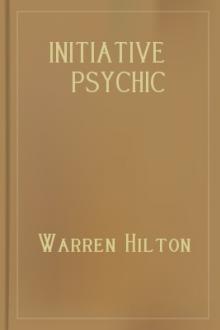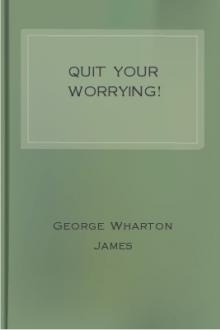Genre Psychology. Page - 2

THE COMIC IN GENERAL--THE COMIC ELEMENT IN FORMS AND MOVEMENTS--EXPANSIVE FORCE OF THE COMIC.
What does laughter mean? What is the basal element in the laughable?What common ground can we find between the grimace of a merry-andrew, a play upon words, an equivocal situation in a burlesque anda scene of high comedy? What method of distillation will yield usinvariably the same essence from which so many different productsborrow either their obtrusive odour or their delicate perfume? Thegreatest of thinkers, from Aristotle downwards, have

elves, not after the usual manner of works on psychology, but solely from the standpoint of practical utility and for the establishment of a scientific concept of the mind capable of everyday use.
[Sidenote: Fundamental Laws and Practical Methods]
The elucidation of every principle of mental operation will be accompanied by illustrative material pointing out just how that particular law may be employed for the attainment of specific practical ends. There will be numerous illustrative instances and methods that can be at once made use of by the merchant, the musician, the salesman, the advertiser, the employer of labor, the business executive.
[Sidenote: Special Business Topics]
In this way this Basic Course of Reading will lay a firm and broad foundation, first, for an understanding of the methods and devices whereby any man may acquire full control and direction of his mental energies and may develop his resources to the last degree; second, for an understanding of the ps

hand,strengthens the will and increases strength of purpose as the pettyobstacles of mere self-love are removed. Concentration alone cannotlong remain wholesome, for it needs the light of growingself-knowledge to prevent its becoming self-centred. Yielding aloneis of no avail, for in itself it has no constructive power. But ifwe try to look at ourselves as we really are, we shall find greatstrength in yielding where only our small and private interests areconcerned, and concentrating upon living the broad principles ofrighteousness which must directly or indirectly affect all thosewith whom we come into contact.
I
The Freedom of Life
I AM so tired I must give up work," said a young woman with a verystrained and tearful face; and it seemed to her a desperate state,for she was dependent upon work for her bread and butter. If shegave up work she gave up bread and butter, and that meantstarvation. When she was asked why she did not keep at work andlearn to do it witho

the pathology of the subject will be laid claim to, frequent references will be made to the illusions of the insane. Indeed, it will be found that the two groups of phenomena--the illusions of the normal and of the abnormal condition--are so similar, and pass into one another by such insensible gradations, that it is impossible to discuss the one apart from the other. The view of illusion which will be adopted in this work is that it constitutes a kind of border-land between perfectly sane and vigorous mental life and dementia.
And here at once there forces itself on our attention the question, What exactly is to be understood by the term "illusion"? In scientific works treating of the pathology of the subject, the word is confined to what are specially known as illusions of the senses, that is to say, to false or illusory perceptions. And there is very good reason for this limitation, since such illusions of the senses are the most palpable and striking symptoms of mental disease. In addition to this,

Your quickened step, your new-found decisiveness of action, your more observant eye, your clear-cut speech instead of the former drawling utterance, your livelier manner, your freshened enthusiasm and enjoyment of life--all of these are but manifestations of a quickened intelligence.
[Sidenote: Quickened Mentality]
They are the working out through the motor paths of mental impulses to muscular action.
And these impulses to muscular action come thronging into consciousness because the livelier environment brings about a more rapid reproduction of memory pictures.
And here comes a particularly striking fact. One would naturally suppose that the more energy a man consumed, and the faster he lived, the more quickly his vitality would be exhausted and the shorter his life would be.
As a matter of fact, by the divine beneficence of Providence, your organism is so ordered as to adapt itself within certain wide limits to the demands made upon it

way of defining Beauty which grounds it in general principles,while allowing it to reach the concrete case, is set forth inthe essay on the Nature of Beauty. The following chapters aimto expand, to test, and to confirm this central theory, byshowing, partly by the aid of the aforesaid special studies,how it accounts for our pleasure in pictures, music, andliterature.
The whole field of beauty is thus brought under discussion;and therefore, though it nowhere seeks to be exhaustive intreatment, the book may fairly claim to be a more or lessconsistent and complete aesthetic theory, and hence toaddress itself to the student of aesthetics as well as to thegeneral reader. The chapter on the Nature of Beauty, indeed,will doubtless be found by the latter somewhat technical, andshould be omitted by all who definitely object to professionalphraseology. The general conclusions of the book aresufficiently stated in the less abstract papers.
Of the essays which compose the following volume, the f

fitted to occupy the attention of thebeginner, as well as the more experienced, because it is a mostexcellent place to start the study of management. A careful study ofthe relations of psychology to management should develop in thestudent a method of attack in learning his selected life work thatshould help him to grasp quickly the orderly array of facts that theother variables, as treated by the great managers, bring to him.
PURPOSE OF THIS BOOK.--It is scarcely necessary to mention thatthis book can hope to do little more than arouse an interest in thesubject and point the way to the detailed books where such aninterest can be more deeply aroused and more fully satisfied.
WHAT THIS BOOK WILL NOT DO.--It is not the purpose of this bookto give an exhaustive treatment of psychology. Neither is itpossible in this book to attempt to give a detailed account ofmanagement in general, or of the Taylor plan of "ScientificManagement" so-called, in particular. All of the literature on thesu

most entirely supplied from these two quarters: and yet it is evident that neither the one nor the other party can give to the problem its most natural setting. The student of mental diseases naturally emphasizes the abnormal features of the situation, and thus brings the psychotherapeutic process too much into the neighborhood of pathology. Psychotherapy became in such hands essentially a study of hypnotism, with especial interest in its relation to hysteria and similar diseases. The much more essential relation of psychotherapy to the normal mental life, the relation of suggestion and hypnotism to the normal functions seemed too often neglected. Whoever wants to influence the mind in the interest of the patient, must in the first place be in intimate contact with psychology. On the other hand, the minister's spiritual interest brings the facts nearer to religion than they really are. That a suggestion to get rid of toothache, or to sleep the next night, is given by a minister, does not constitute it as a re

mall-pox, was agreeable in its expression, and full of intelligence. At this time he began to neglect his business, and becoming vain of his person, indulged in considerable extravagance of attire. He was a great favourite with the ladies, by whom he was called Beau Law; while the other sex, despising his foppery, nicknamed him Jessamy John. At the death of his father, which happened in 1688, he withdrew entirely from the desk, which had become so irksome, and being possessed of the revenues of the paternal estate of Lauriston, he proceeded to London, to see the world.
He was now very young, very vain, good-looking, tolerably rich, and quite uncontrolled. It is no wonder that, on his arrival in the capital, he should launch out into extravagance. He soon became a regular frequenter of the gaming-houses, and by pursuing a certain plan, based upon some abstruse calculation of chances, he contrived to gain considerable sums. All the gamblers envied him his luck, and many made it a point to watch his play,

to that death-in-life that is no life at all. It is the vampire that sucks out the good of us and leaves us like the rind of a squeezed-out orange; it is the cooking-process that extracts and wastes all the nutritious juices of the meat and leaves nothing but the useless and tasteless fibre.
Worry is a worse thief than the burglar or highwayman. It goes beyond the train-wrecker or the vile wretch who used to lure sailing vessels upon a treacherous shore, in its relentless heartlessness. Once it begins to control it never releases its hold unless its victim wakes up to the sure ruin that awaits him and frees himself from its bondage by making a great, continuous, and successful fight.
It steals the joy of married life, of fatherhood and motherhood; it destroys social life, club life, business life, and religious life. It robs a man of friendships and makes his days long, gloomy periods, instead of rapidly-passing epochs of joy and happiness. It throws around its victim a chilling atmosphere as do